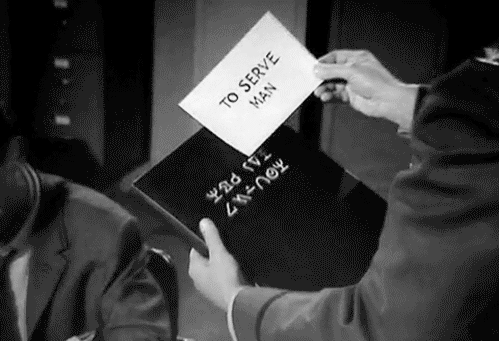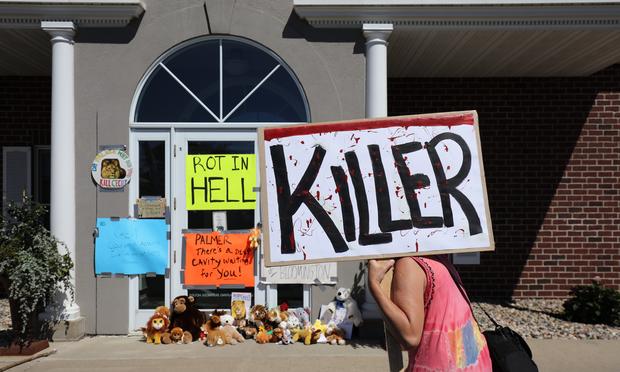For this reason, I have always preferred the title of George Weigel's biography of pope John Paul II, "A Witness to Hope." In this case, you really do have an agent who is doing the "hoping" (viz. JP II), and thus the virtue of hope is not mistaken for some kind of feeling or atmosphere, but rather an action of the will.
Consequently, when one is speaking of hope, it is important to understand just that. In order for there to be any real sense of hope, there needs to be someone to will it, choose it, and subsequently act in accord with it. And why is this important? Because when it comes to the difficult questions of life we oftentimes find ourselves at odds. Yet there is one thing that we do share in common. No matter what our creed or philosophy, we all suffer, and in this respect, we all huddle together in the shared dream of a future wherein "every tear is wiped away."
The following movie clips epitomize (in my opinion) the spirit of hope, demonstrating, in a very practical way, how we ourselves can be agents and signs of this life saving virtue, heartening and encouraging one another- especially during those seasons of life that might best be described as winter.
1. Life is Beautiful - Rebellion and Resistance (especially in the face of despair)
In this exquisite scene from the classic film Life is Beautiful, the father, Guido, sets aside his own fear (which is quite understandable) out of love for his son- so that his baby boy will have the strength and endurance to survive the camp. In this sense then, hope is also a kind of rebellion, for instead of giving into despair, it declares implicitly that there is some good that lies beyond the present state of darkness, and thus one will not give in or be conquered by the ministers of despair. Such a rebellion is a fearful and confounding thing to those whose program it is to promote hopelessness.
2. Shawshank Redemption - Beauty
Shawshank is not a concentration camp, but it is a high security penitentiary, where prisoners oftentimes lose any sense of hope. Thus, Andy Dufresne definitely serves as an agent of hope, especially as he labors to promote dignity among his fellow inmates, reminding them that they are men and not animals. In this particular scene, Dufresene exchanges two weeks in solitary confinement for the opportunity to give the prison inmates a little taste of heaven, not to mention the experience of knowing that their true destiny lies beyond those prison walls. Music and beauty are powerful reminders that there is something beyond the walls of this life, and those who make this gift available to others serve as great witness to that reality.
Everyone has wanted to give up at one time or another. And there are plenty of agents of despair out there willing to take us up on the offer, reciting their favorite mantra; "you might as well give up, what's the point of even trying?" However, thankfully there are also those who attempt to keep us in the game, and snap us out of our self-indulgent funk. Yet sometimes we are so given to despair, that we are even tempted to view those who are trying to help us as the enemy (as is the suggestion of this clip). But whatever the case, we all lose our way, and we all forget ourselves, and so sometimes we need someone to take us aside and get in our face a little bit to remind us of who we are and what we should be about. So yes, hope can on occasion come in the form of a friend's slap across the face, especially if it gives us strength to get back on the path of righteousness.
4. The Mission - Perseverance and Fortitude
As is the case with any long pilgrimage, there are points at which both the end and the beginning seem far too remote to offer any real consolation. In other words, you have come too far to go back, but you're are also not far enough along the way to even imagine the glory and satisfaction of what it means to reach the finish line. Thus, there are certain moments in the pilgrimage, where the best you can do is put one foot in front of the other without thinking too much about anything else. These folks may not realize that they are tremendous "witnesses to hope", but they are indeed. Even while they are grimacing and struggling in the pain and severity of this purgative experience, others watch in awe realizing, and perhaps even saying to themselves, if he/she can do it, why can't I? They are, if nothing else, a sign that "it" (whatever that may be) can be accomplished. I can make it through this difficult time too! There is a light at the end of the tunnel. "I think I can, I think can!" But whatever the case, this spectacular scene from the movie "The Mission," demonstrates not only the beauty and grit of perseverance, but its redemptive quality as well. For the main character in this clip, Rodrigo, will not allow himself to enjoy the spoils of beatitude (and in truth cannot) until he has "carried his cross" in a way that satisfies his own sense of justice.
5. Cool Hand Luke - Resilience
Those with a profound sense of hope generally demonstrate a spirit of resilience, and while they may wish to remain laid out on the canvas of life, they feel, for whatever reason, compelled to peel themselves off the canvas and fight on. Much like "Cool Hand Luke" in this scene, the man with genuine hope sees victory not merely in the externals (for everyone is limited in this regard), but in the act of conquering through the unconquerable will. We are all ultimately sent to the canvas in this life in one way or another, but only the man of true hope is courageous enough to continue get up and fight on for what is good and just, even when the reward is not immediately apparent.
6. Children of Men - New Life
The two primary enemies of hope are both presumption and despair, two opposites that are so far apart that they actually resemble one another (if the devil is two-faced, then these are his faces). If despair is the act of giving up the fight, then I guess presumption is the act of losing the fight because you take winning for granted. In this sense then, we too demonstrate such a presumption about the gift of life when, for lack reverence and gratitude, we throw it in the trash. The movie of Children of Men, however, reminds us of what the world might look like if that gift were for some reason taken away. In this apocalyptic tale of despair (i.e. a future where no one can conceive) even the sound of a baby crying is the like noise of salvation, reminding the viewer in a very practical way, that without children there is no tomorrow, and thus no real reason to hope. Consequently, in this sense, a baby is quite literally the sacrament of tomorrow/hope. Yet a baby is not merely a sign of hope in what they are objectively in themselves, but also in what they give to us. Indeed, just by being in their presence, they actually take us back to our own innocence, providing us memories and inspiration for our own renewal. If this were not the case, then why else would some of stiffest individuals (like me) be inspired to talk in such a ridiculous fashion, as if they were learning to speak for the first time again?
7. Joyeux Noel - Peace and Reconciliation
A near miraculous event occurred during World War 1, an event whereby a ceasefire occurred on Christmas day. Hence, in spite of the relentless war that was going on in the trenches at the time, there was something that allowed opposing sides, at least for the moment, to transcend their enmity: the birth of Jesus Christ. This extraordinary event is captured, at least in part, by the movie Joyeux Noel. The mind reels at the paradox of enemies seeking to kill each other one minute, and singing carols and playing games with one another the next. Any man who who seeks to build a bridge between two opposing groups can be regarded as a sign of hope, but only Christ in his Incarnation, can be regarded as Hope itself. For he is only One who has ever declared that in order to enter heaven you must not only forgive your enemies, but you must (of all things), love them. Is there any more practical sign of hope than this? Is there any other way out of the endless cycle of violence than a religion and philosophy that commands its adherents to be willing to lay down their lives, not only for the sake of their friends, but perhaps even for the sake of their enemies?
Bonus Clip from Shawshank Redemption:











